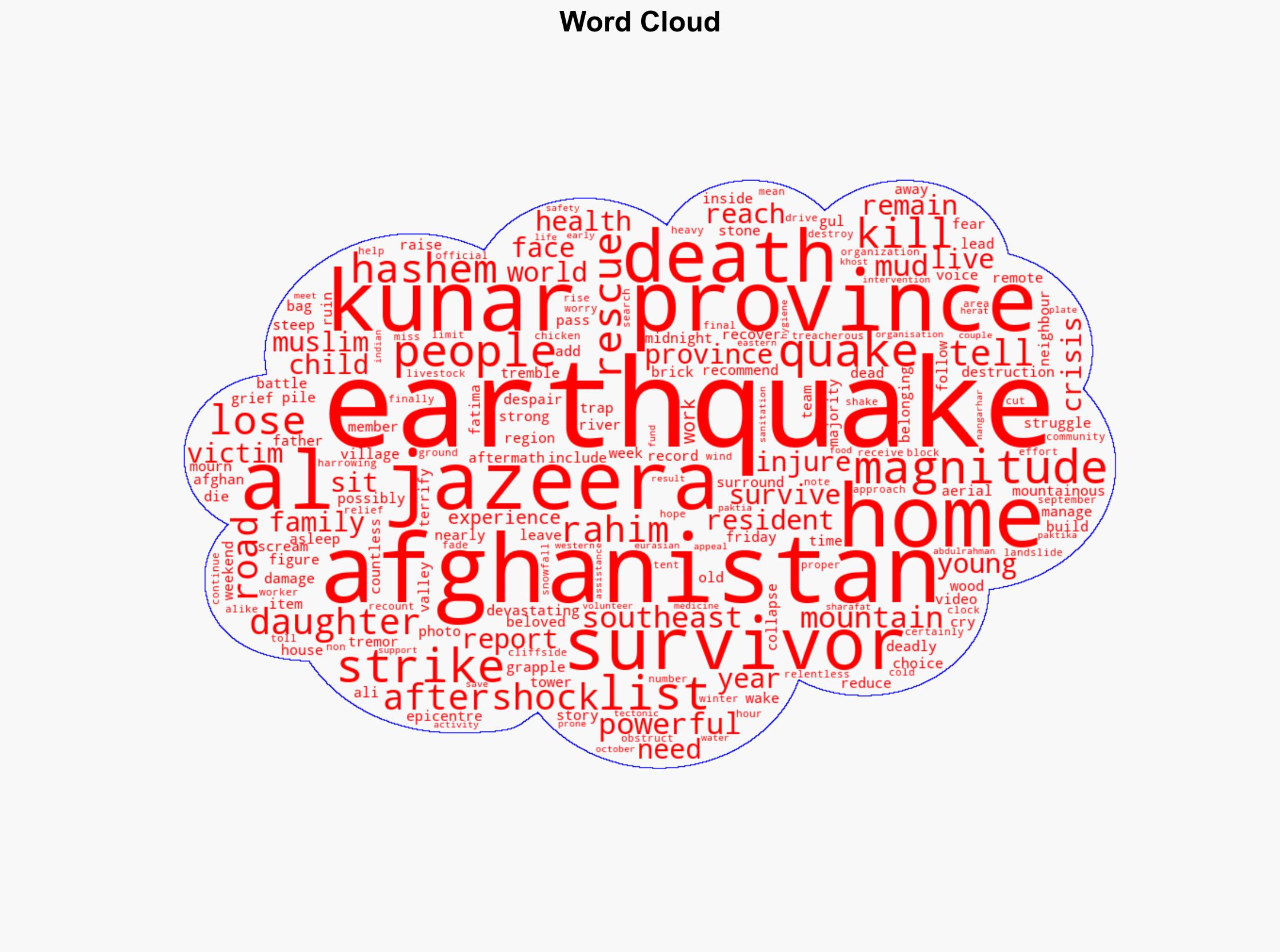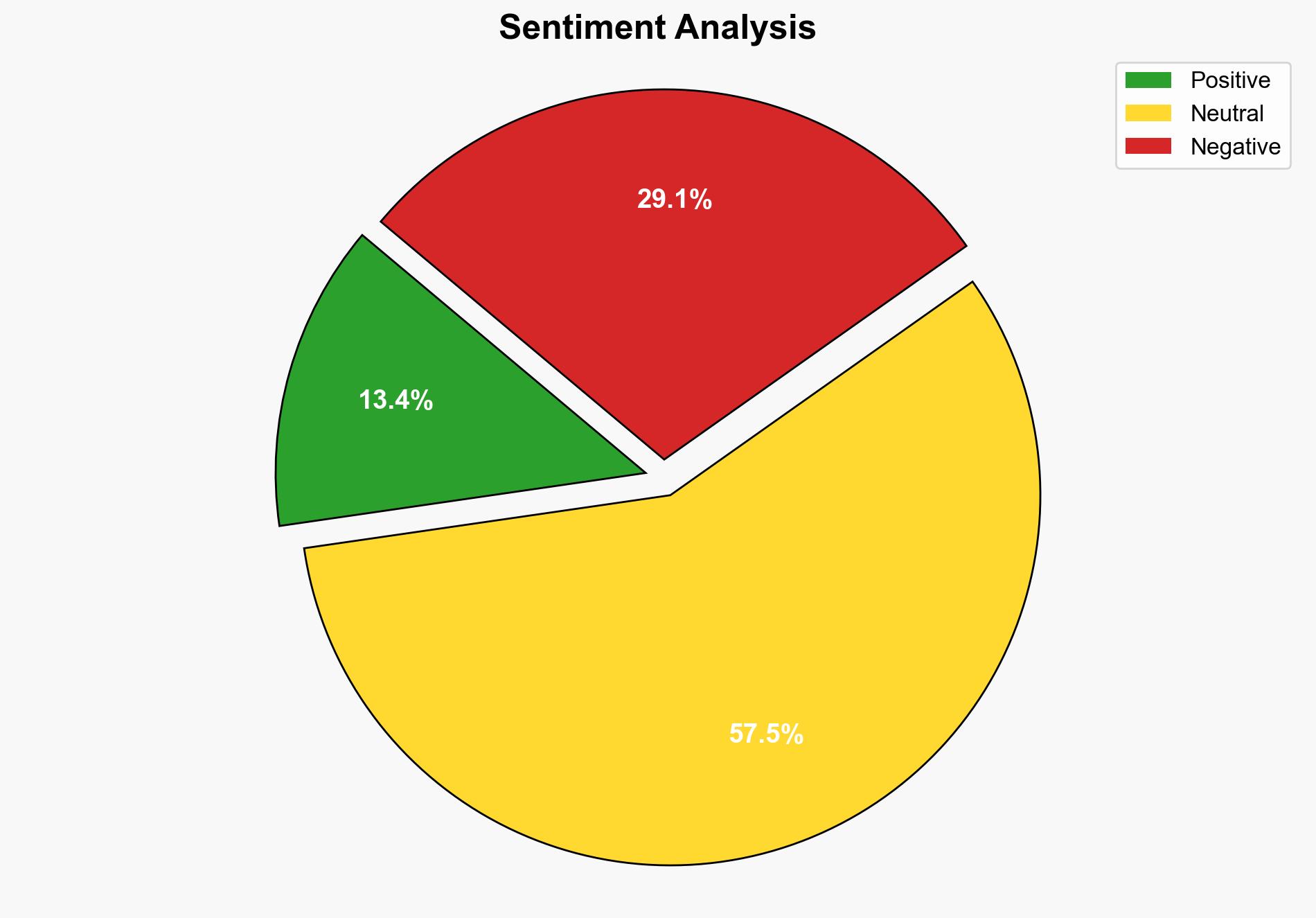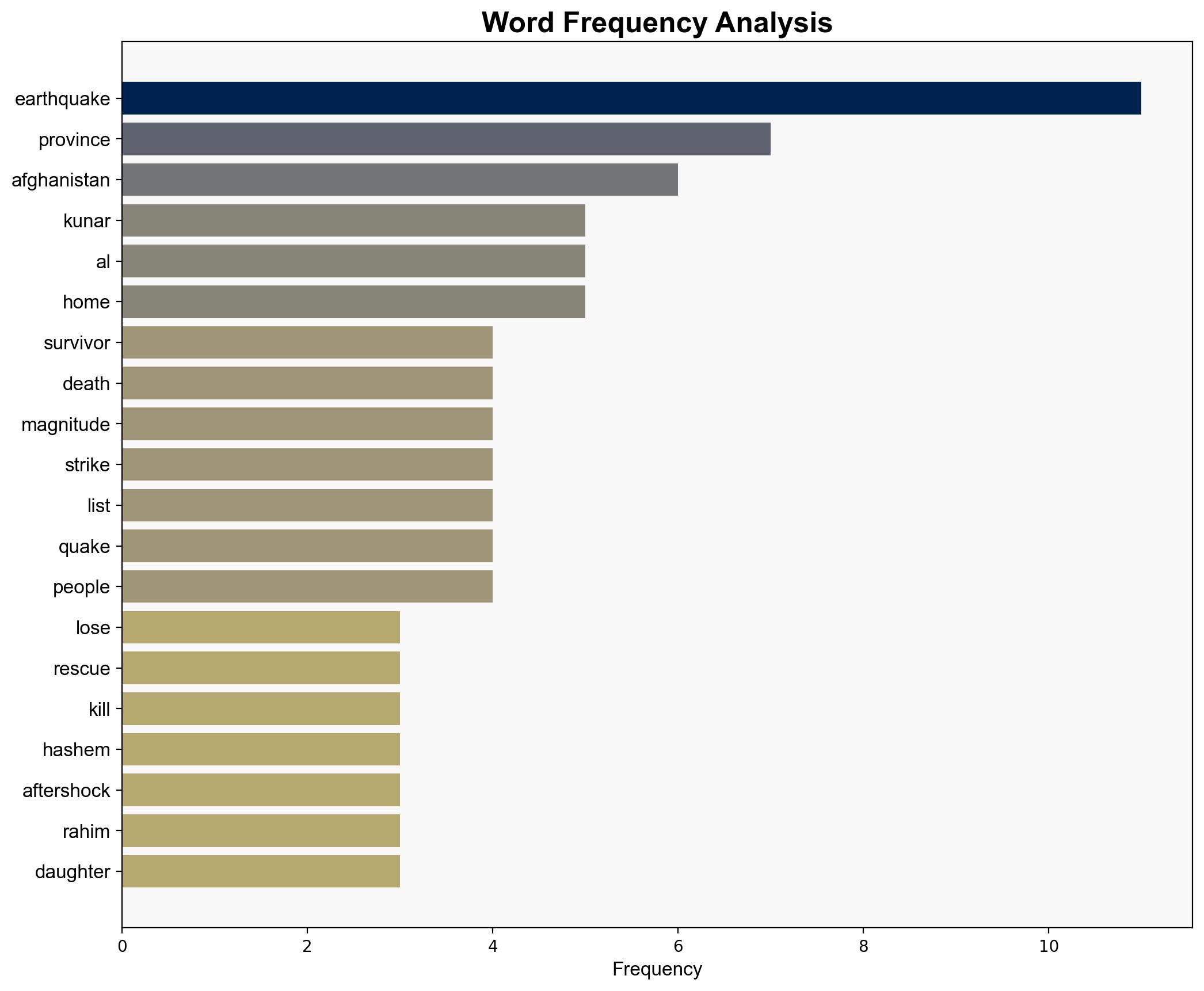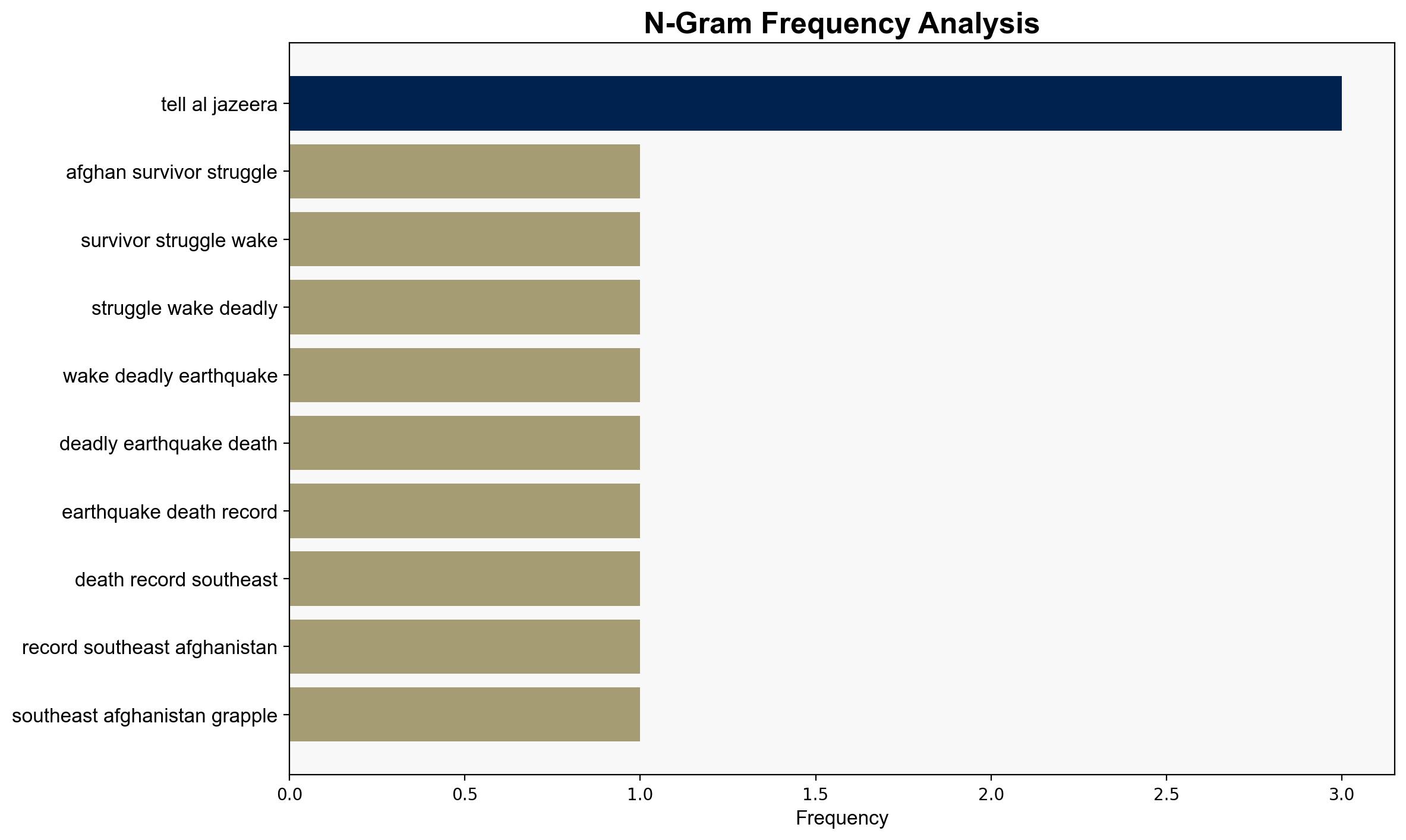Afghan survivors struggle in the wake of deadly earthquake – Al Jazeera English
Published on: 2025-09-06
Intelligence Report: Afghan survivors struggle in the wake of deadly earthquake – Al Jazeera English
1. BLUF (Bottom Line Up Front)
The most supported hypothesis is that the Afghan government and international aid organizations will struggle to provide timely and adequate relief to earthquake survivors due to logistical challenges and ongoing security concerns. Confidence level: Moderate. Recommended action: Enhance coordination between local and international aid agencies, prioritize infrastructure repair, and ensure security for aid delivery.
2. Competing Hypotheses
1. **Hypothesis A**: The Afghan government and international aid organizations will effectively coordinate to deliver timely relief to earthquake survivors, mitigating the humanitarian crisis.
2. **Hypothesis B**: Logistical challenges and security concerns will hinder the delivery of effective aid, exacerbating the humanitarian crisis in the affected regions.
Using the Analysis of Competing Hypotheses (ACH) 2.0, Hypothesis B is better supported due to evidence of blocked roads, ongoing aftershocks, and limited access to remote areas, as well as historical challenges in delivering aid in Afghanistan.
3. Key Assumptions and Red Flags
– **Assumptions**: It is assumed that international aid organizations have the capacity and willingness to assist, and that the Afghan government can effectively coordinate relief efforts.
– **Red Flags**: Reports of blocked roads and aftershocks suggest that logistical issues may be more severe than anticipated. The potential for rising death tolls and missing persons indicates incomplete data.
– **Blind Spots**: The extent of local community resilience and self-help efforts is not fully explored, which could impact the overall relief dynamics.
4. Implications and Strategic Risks
– **Humanitarian Impact**: Prolonged aid delays could lead to increased mortality and morbidity, particularly as winter approaches.
– **Geopolitical Risks**: Ineffective aid delivery could undermine the credibility of both the Afghan government and international organizations, potentially destabilizing the region further.
– **Security Concerns**: The presence of blocked roads and aftershocks may increase the risk of insurgent activities exploiting the situation.
5. Recommendations and Outlook
- **Immediate Action**: Deploy rapid assessment teams to identify and clear blocked routes, ensuring safe passage for aid convoys.
- **Short-term**: Establish temporary shelters with adequate heating to mitigate the impact of the approaching winter.
- **Long-term**: Invest in infrastructure resilience to better withstand future natural disasters.
- **Scenario Projections**:
- **Best Case**: Effective coordination leads to timely aid delivery, minimizing the humanitarian impact.
- **Worst Case**: Continued logistical and security challenges result in a severe humanitarian crisis with high mortality rates.
- **Most Likely**: Partial aid delivery with ongoing challenges, leading to moderate humanitarian impact.
6. Key Individuals and Entities
– Gul Rahim: Affected resident who lost family members.
– Abdulrahman Sharafat: Volunteer involved in relief efforts.
7. Thematic Tags
national security threats, humanitarian crisis, disaster response, regional focus




